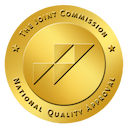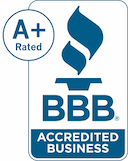A Guide to Addiction & Rehab: Fayetteville, NC
Fayetteville, North Carolina, is a city in the eastern United States with a distinctly patriotic flair, as it is home to the massive US Army instillation of Fort Bragg. The community of military veterans, low-income residents, and a high number of residents working in farming or manufacturing may contribute to higher than average levels of pain and therefore elevated painkiller use and potential misuse.
A larger percentage of residents in Cumberland County live in poverty compared to the rest of North Carolina. According to the United States Census, approximately 15 percent of North Carolinians residents live in poverty. Cumberland County residents had lower median household incomes than statewide averages and a higher unemployment rate. Crime rates, including property crime and violent crime, were higher than peer counties and state averages for Cumberland County. For the state, the Behavioral Health Barometer: North Carolina 2019 indicates that rates of alcohol dependence and misuse are slightly lower than national averages (4.7 percent of North Carolina residents versus a 5.3 percent national average) and slightly lower for substance use disorders (6.5 percent for North Carolina residents as opposed to a 7.4 percent national average).
Drug and alcohol misuse, addiction, and mental health concerns are often intertwined. Integrated behavioral health programs can be great resources for recovery. There are many different options for services and care within Fayetteville and North Carolina.

Fayetteville, North Carolina Opioid Epidemic
A particularly alarming trend is the rise in synthetic opioid misuse, as fentanyl and fentanyl analogues are increasingly popping up as an emerging dangerous trend. The North Carolina DHHS publishes that heroin, fentanyl, and fentanyl analogue overdose death rates are rising, as are emergency department visits related to heroin and synthetic opioids.
The Opioid Action Plan introduced in June 2017 by North Carolina Governor Roy Cooper seeks to increase access to the potentially lifesaving drug naloxone, as well as heighten community awareness regarding the scope of the issue, expand treatment resources and recovery services, minimize diversion of pharmaceuticals and flow of illicit drugs in the region, and lower the oversupply of prescription opioids.
Youth Opioid Use
Throughout the country, youth populations are experimenting, misusing, and even becoming addicted to opioids. In fact, approximately 14% of high school students report misusing opioids. The misuse of and addiction to opioids during one's teenage years can lead to several negative repercussions, including higher rates of mental illness and poor overall health and wellbeing. Thankfully, there is help with opioid addiction in Fayetteville, NC available.

Finding Alcohol & Drug Rehab, Fayetteville, NC
Within the state of North Carolina, there are 14 healthcare facilities operated by the state, offering public mental health and substance misuse treatment services through the NC DHHS. The Division of Mental Health, Developmental Disabilities and Substance Abuse Services uses the Recovery-Oriented Systems of Care (ROSC) to promote long-term support for lifetime recovery. Services are provided through a Local Managing Entity (LME), which for Cumberland County residents is Alliance Behavioral Healthcare, the regional LME-Managed Care Organization (MCO). The LME-MCO then partners with private providers to offer local services, a directory of which can be found here.
Substance misuse and mental health treatment services include:
- Case management.
- Detox services.
- Counseling.
- Outpatient services.
- Residential programs.
- Psychiatric care.
- Medical management.
- Integrated treatment for co-occurring disorders.
- Evaluations.
- Group, family, and individual therapy.
- Transitional services.
- Recovery support services.
How to Get to Oxford from Fayetteville, NC
Driving Directions From Fayetteville, NC to Oxford Treatment Center: Turn left onto I-95. Continue onto NC-87 S. Take the exit to merge onto I-95 S toward Lumberton. In 84 miles, take exit 160B on the right to merge onto I-20 W toward Columbia. In 432 miles, take exit 124C to merge onto I-64 N toward Hunstville. Take exit 265A to merge onto I-22 W toward Memphis. In 153 miles, take exit 61 onto MS-30 W toward Oxford, West New Albany. Turn left onto MS-30 toward Oxford. In 15 miles, turn right onto CR-244. In 3 miles, turn left and then take a slight left turn. Turn right, and arrive at Oxford Treatment Center in Etta, MS. This route takes approximately 10 hours.

Fayetteville Rehabilitation & Addiction Resources
Individuals who serve jail time due to a problem associated with mental illness may be eligible for the Jail Diversion Program, which can provide them with necessary mental health support or addiction counseling in Fayetteville, NC as opposed to incarceration. Individuals struggling with drug and/or alcohol problems and addiction who are arrested for nonviolent and drug-related crimes may be eligible to enter into the North Carolina Drug Treatment Courts (DTC) system. Individuals will undergo court-mandated treatment for drug and alcohol-related issues, and upon completion of the program, they may have their sentence reduced or charges dropped.
There are many resources for families and individuals in the Fayetteville, North Carolina, including nonprofit and community organizations host prevention, education, treatment, referral, and recovery support services. A nonprofit organization seeking to bridge the treatment gap for Cumberland County residents, Better Health of Cumberland County, provides services for low-income and underserved populations. The CARE (Compassion, Assistance, Referral, and Education) Clinic also offers free healthcare to eligible residents in Cumberland County.
The nonprofit Partnership for Children of Cumberland County also hosts an Alcohol/Drug Council of North Carolina. A faith-based social services organization, Operation Blessing offers support, resources, and services for Fayetteville and local residents.
There are many resources available for behavioral healthcare prevention, treatment, and recovery support within the Fayetteville area of North Carolina.

Addiction Treatment in Fayetteville, NC
Get started on your recovery right now by filling out our secure and having your insurance verified within minutes.




